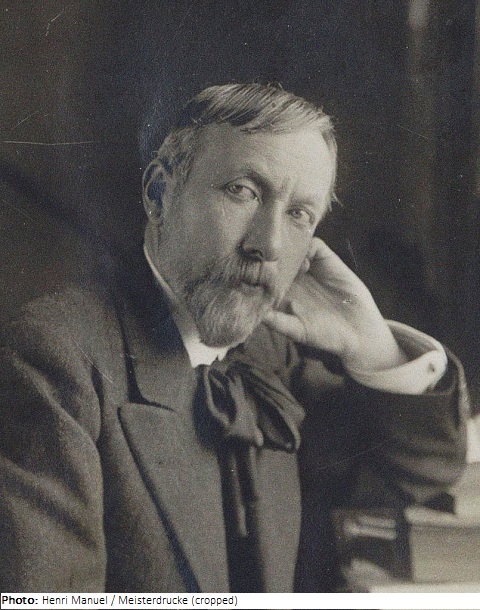
| Roles | Referee |
|---|---|
| Sex | Male |
| Full name | Henri Constant Gabriel•Pierné |
| Used name | Gabriel•Pierné |
| Born | 16 August 1863 in Metz, Moselle (FRA) |
| Died | 17 July 1937 (aged 73 years 11 months 1 day) in Ploujean, Morlaix, Finistère (FRA) |
| NOC |  France France |
Gabriel Pierné came from a family of musicians and became a well-known French composer, conductor, and organist. After the French defeat in the Franco-Prussian War, the family left Alsace, which devolved to Germany, and moved to Paris, where he studied piano, organ, and composition at the Conservatory from 1871-72. He later won first prizes for piano (1879), counterpoint and fugue (1881), and organ (1882), and eventually was awarded the Grand Prix de Rome in 1882 for his cantata Édith. In 1890 he followed his teacher César Franck (1822-1890) as organist at the Ste. Clotilde Church and remained there until 1898.
Pierné made his real musical career as a conductor. He was first assistant conductor and from 1910 conductor of the Concerts Colonne. He conducted various premieres of works of new music, including George Enescu’s Symphony No. 3 and Igor Stravinskys’s The Firebird at the Ballets Russes. Pierné was elected a member of the Academie des Beaux-Arts in 1924. In 1900 he was made a Knight of the Legion of Honor, promoted to officer in 1926 and commander in 1935. The stele on his grave in Père-Lachaise Cemetery in Paris is by Henri Bouchard.
Pierné’s early orchestral works were critically acclaimed and made him one of the new hopes of the French school in the late 1880s. His major achievements, however, can be found in chamber and piano music, such as a sonata for violin and piano (1900) and a quintet for piano and strings (1917). Oratorios and musical theater took up the largest part of his output. He composed numerous comic operas and some ballet music, among other works. His music can be attributed to the style of late romanticism.
| Games | Sport (Discipline) / Event | NOC / Team | Phase | Unit | Role | As | |
|---|---|---|---|---|---|---|---|
| 1928 Summer Olympics | Art Competitions |  FRA FRA |
Gabriel Pierné | ||||
| Music, Compositions For Orchestra, Open (Olympic) | Final Standings | Judge | |||||
| Music, Compositions For Solo Or Chorus, Open (Olympic) | Final Standings | Judge | |||||
| Music, Instrumental And Chamber, Open (Olympic) | Final Standings | Judge |